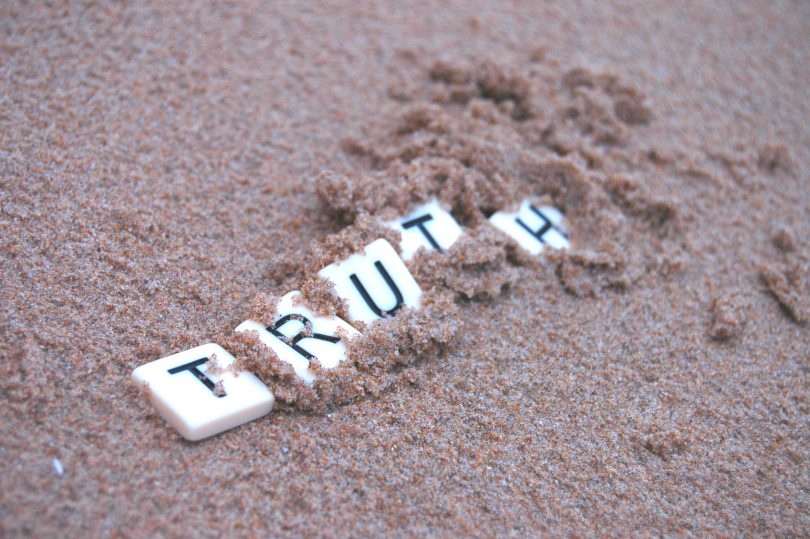The issue of being truthful or not has repeatedly been in the national news over these past few months and that is a good thing. It brings to our attention the importance of some fundamental values in our society such as honesty, integrity and truthfulness. The national discussion also gives us a vertiginous glimpse of the abyss we would fall into if we abandoned those values.
However, defining the concept of truth is difficult. Scholars, philosophers, and theologians have struggle with its meaning for ages. The concept has been explored in literature and the arts.
The German 20th century philosopher Martin Heidegger believed that the ancient Greek word for truth simply meant “the revealing of something that was previously concealed.” Another German philosopher, Jurgen Habermas believed that truth is whatever is agreed upon (the Consensus Theory.) The poet John Keats made the connection between truth and beauty. He wrote in Ode on a Grecian Urn:
“’Beauty is truth, truth beauty,’ – that is all / Ye know on earth, and all ye need to know.”
In this complicated process of defining truth, we find some comfort from “facts.” However, we quasi never have all the facts. Furthermore, there is a difference between facts and how we interpret or experience them. A good analogy is the wind chill factor. It is the difference between the outdoor temperature that is scientifically measured and what we feel or experience because of the cooling effect of wind.
We all tend to believe what confirms an opinion we already have. Professor Philip Fernbach of the University of Colorado and Professor Steven Sloman of Brown University in a recent New York Times Op-ed “Why We believe Obvious Untruth” make the interesting point that often we do not have enough knowledge to separate fact from fiction because; they write, “ignorance is our natural state; it is a product of the way the mind works.” They also note that “large group of people can coalesce around a common belief when few of them individually possess the requisite knowledge to support it.”
How should we then live? How can we act in a rational and moral way if we are confused as to what is and what is not? Are we prisoners of our own ignorance as to the truth? We all know the famous biblical saying:
“Ye shall know the truth and the truth shall set you free.”
- I believe we should rely on what we believe is true while honestly challenging our beliefs to make sure they correspond to reality, or at least to the reality we perceive.
- We should never engage in any activity that we know is deceptive and make every effort not to intentionally mislead by what we do, say or write.
- Finally, we should hold accountable any individual, corporation or government that engages in deceptive practices.
The PRSA Code of Ethics states that:
“We adhere to the highest standards of accuracy and truth in advancing the interests of those we represent and in communicating with the public.”
The reason truth is so important is that when it is betrayed, it erodes and sometimes permanently damages trust. We cannot function without a minimum of trust. Without trust we would never undergo surgery or take a prescription drug or even buy food. Without trust we would never ride an elevator or a car or even sit on a chair. The list is endless. It is, in fact, hard to imagine a human activity that does not involve at least some level of trust.
That is why it is critical for democratic societies to defend the truth whenever it is threatened.
As Martin Luther once said:
Peace maybe, but Truth at all cost.
Previously published by PRSA-NY
Emmanuel Tchividjian
Principal
The Markus Gabriel Group
Emmanuel Tchividjian
Principal
The Markus Gabriel Group




Comments
Post a Comment